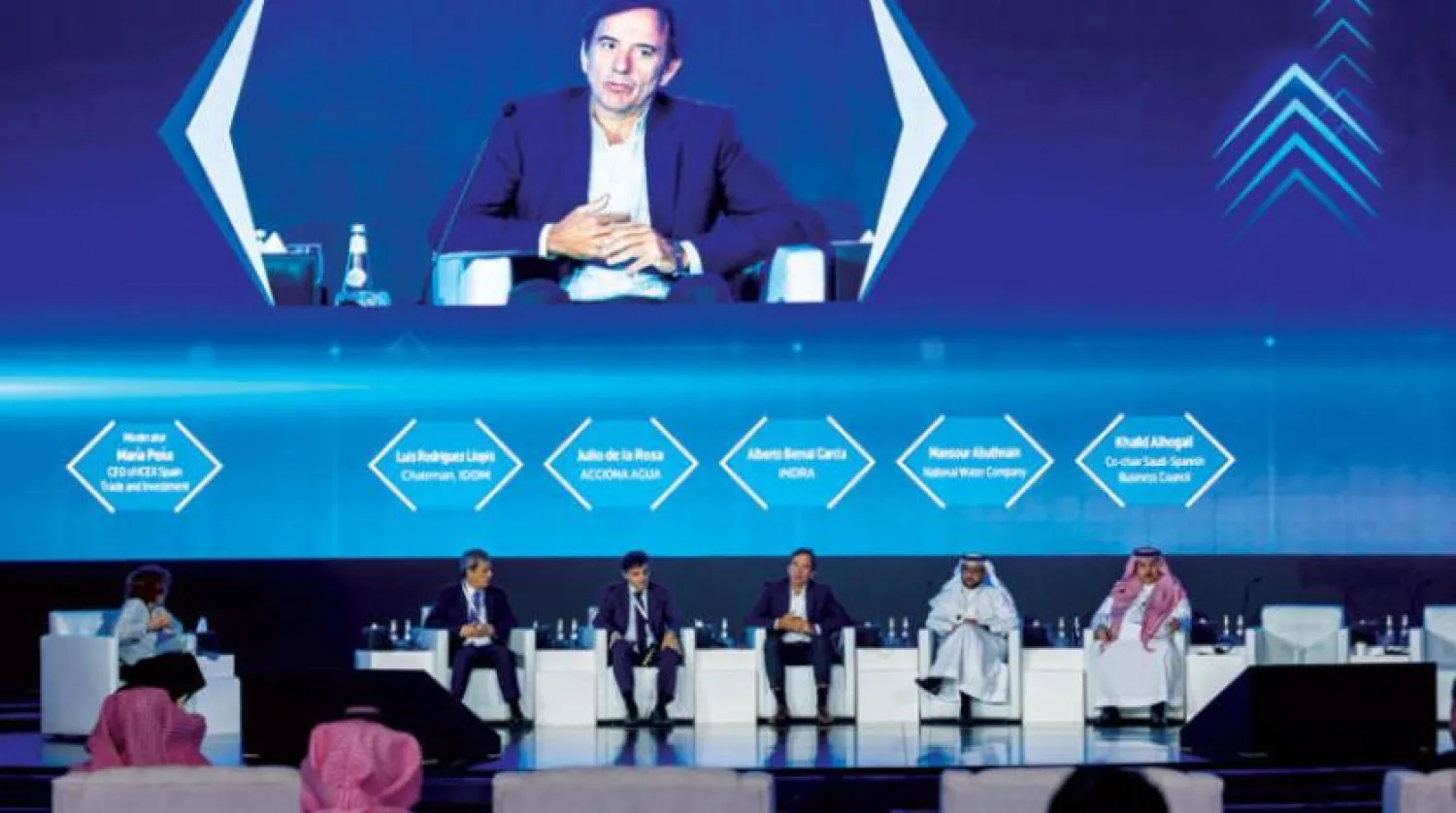Saudi Arabia announced its mega projects to achieve the environmental goals of the Saudi Green and the Middle East Green Initiatives and the goals of net zero emissions.
The Kingdom hosted a Saudi-Spanish Investment Forum attended by a delegation from Madrid chaired by Minister of State for Energy Sara Munoz. It also included several officials, investors, and representatives of Spanish commercial companies.
Saudi Minister of Environment, Water, and Agriculture Abdulrahman al-Fadhli announced the most prominent sectors targeted in the Kingdom to investors from Spain, focusing on green energy, agricultural technology, defense, security, and tourism.
Fadhli indicated that the Forum aims to enable commercial partnerships between the two countries and explore investment opportunities.
The Minister indicated that the Green Initiatives launched by Crown Prince Mohammed bin Salman and the Kingdom's goal of net zero emissions by 2060, sustainability, and more efficient desalination methods could only be completed in partnership with the expertise of the private sector.
Fadhli stated that the Forum provides an excellent opportunity to create more effective dialogues and explore tangible ideas leading to investment development.
He asserted that the Kingdom is looking forward to continued and fruitful cooperation with Spain.
Saudi Arabia aims to become one of the 15 largest economies in the world, which requires a gross domestic product of $1.7 trillion in 2030, said the Minister, adding that the Kingdom wants to increase recycling by 42 percent and establish new facilities to manage 106 million tons of waste by 2035.
He announced that waste-related projects create 77,000 jobs and contribute $32 million to the Kingdom's GDP.
Fadhli added that the first quarter of 2022 represents the best period for the Saudi economy in over a decade.
The International Monetary Fund (IMF) predicted that the Kingdom would witness the second fastest growth this year, revealing that foreign direct investment increased 257.2 percent over the past year, representing 2.3 percent of GDP.
Saudi Minister of Tourism Ahmed al-Khateeb revealed that Saudi Arabia aims to attract 70 million international and local visitors, stressing that tourism in the Kingdom is one of the fastest growing and most attractive sectors globally.
Khateeb indicated that the tourism sector in Saudi Arabia witnessed record developments during the past year, calling for more Spanish companies to join the international partners working in the Kingdom.
The Saudi-Spanish Investment Forum reviewed investment opportunities in the most notable significant projects in the Kingdom, including NEOM, Red Sea, ROSHN, and the Diriyah region.
The sessions also touched on the latest developments and opportunities in key sectors such as water, transportation, infrastructure, hospitality management, innovation, and technology.









